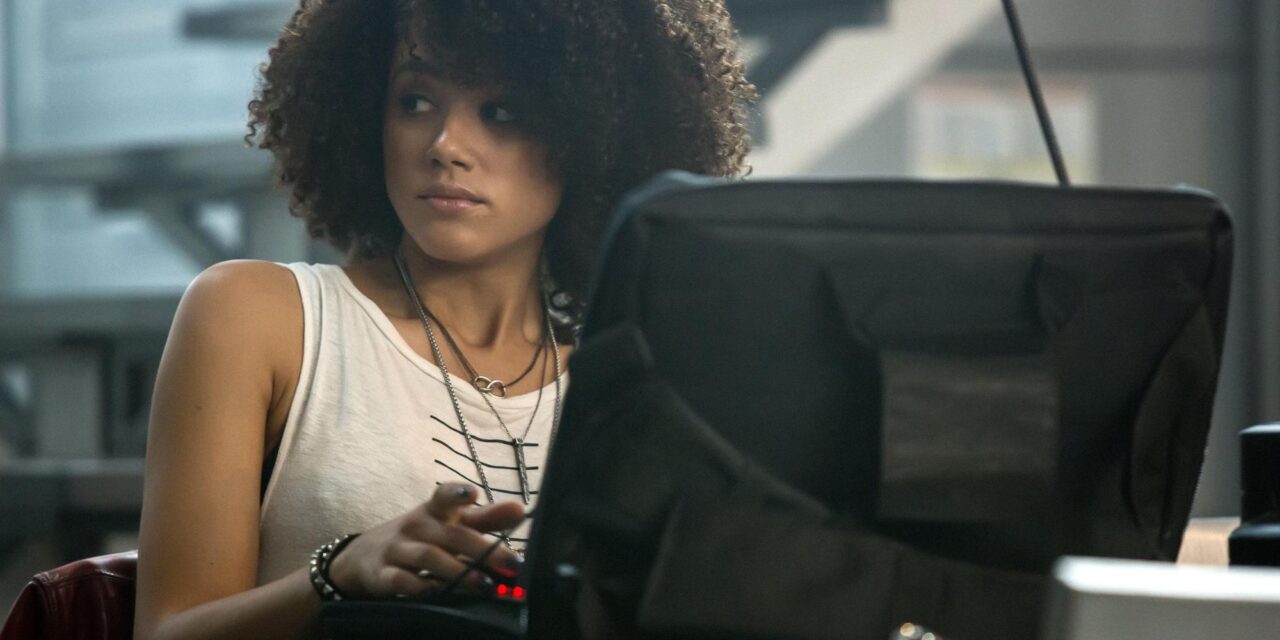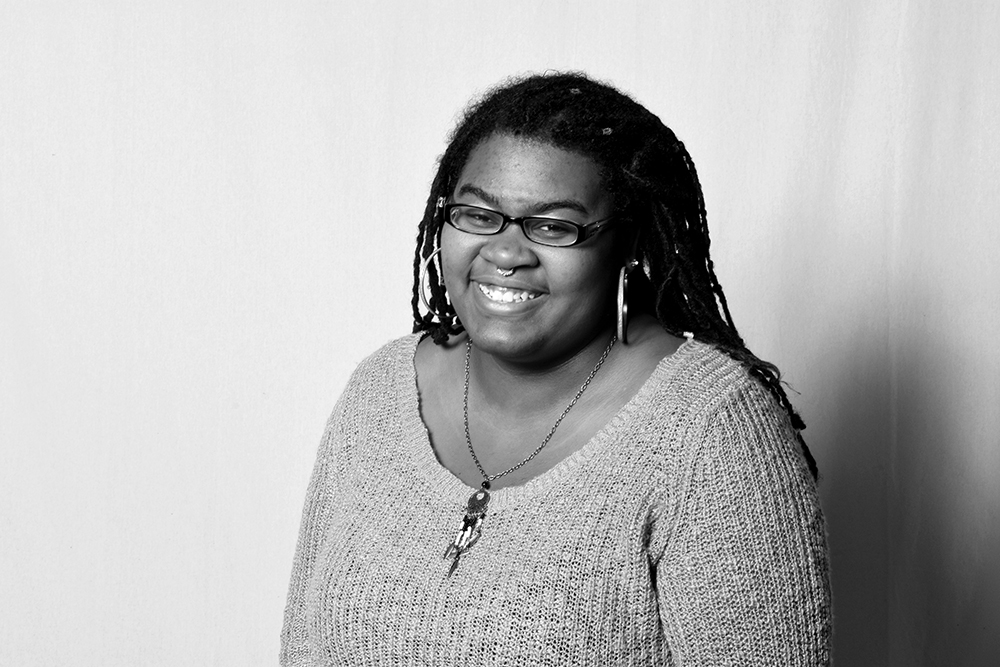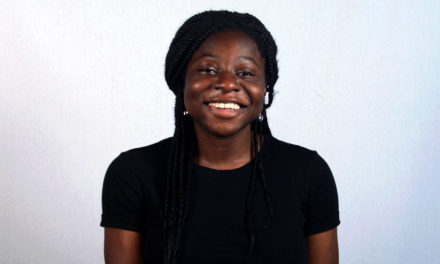When I first saw the trailer for The Invitation, I was excited. I rooted for Bonnie in Vampire Diaries, Tara in TrueBlood and absolutely loved Queen of the Damned, so a movie about a Black ‘final girl’ seemed too good to be true. Turns out it was.
The movie starts with the protagonist, Evie, grieving the death of her last living relative. She decides to take a DNA test. Results are in and (surprise) she has a long-lost wealthy relative ready to save her from poverty. Evie meets with Oliver Alexander, her new-found cousin, and he explains the scandal her white great-grandmother, Emmaline Alexander, caused by fleeing England. To the movie’s credit, Evie makes a joke about Emmaline having to have married a Black man. In their first meeting, Oliver extends an invitation to a family wedding and Evie accepts.
The next scene in the movie depicts five different maids getting out of the back of a dark van. They each have numbers embroidered on their uniform. The camera zooms onto girl number four in an obvious attempt at foreshadowing before Evie enters the stage. The maids drop their glasses and Evie helps to pick them up ,only to be scolded by the Butler, Mr. Fields. Here where she meets tall, dark and handsome Lord of the Manor, Walter DeVille who breaks up the confrontation.
Walter DeVille takes a fancy to Evie, then buys her a gown for the pre-wedding party he is hosting that evening. At the party, she meets two maids of honor, whom I nicknamed Barbie and Marceline. Walter and Evie share a first dance then break away from the crowd. He bares his heart to her and reveals that he is a self-proclaimed bad person. While most people consider that a red flag, our glass-half-full protagonist doesn’t and leans in for a kiss instead.
Fast-forward, Evie is having nightmares about her great-grandmother taking her own life. She wakes up and sees a ghost sitting in the chair across from her bed. So, what does she do? Go on a run to de-stress, and honestly, she’s so real for that. A few nights later, she wakes up and sees a creature crawling above her bed. Evie crawls underneath the bed to hide when she is yanked out (scary). Suddenly, Walter appears and he stays the night until she falls back asleep. Isn’t he romantic?
Then the plot gets interesting. Marceline and Barbie take Evie to a spa day. Marceline tells Evie not to trust Walter before sucking the blood from a cut on Evie’s finger. I would like to note that Evie was more upset by the potential of Walter not being who he said he was versus the bloodsucking. Despite the weirdness, Evie listens #girlssupportinggirls. Lowkey, it was only because Evie had went snooping and found a file of herself in Walter’s office. When she’s packing, Walter convinces Evie not to leave and they have sex… without a condom. All is forgiven and she agrees to attend a masquerade dinner for the groom and unknown bride that night.
Throughout the duration of the movie, Evie asked numerous people who the bride was going to be and people would give shady answers. She was not suspicious enough for me. Finally, it is revealed to Evie that she is supposed to be the bride. Adding insult to injury, she finds out that Barbie and Marceline are Watler’s wives. Then, Mr. Fields slits the throat of one of the maids. The guests at the dinner party cheer and drink the fresh blood.
The traditional horror movie hijinks ensue. Evie tries to escape and is caught. Tries to escape again and is caught. Finally, she has to go to the wedding. Waiting at the altar is maid number four, who is the last surviving maid. Evie drinks Walter’s blood as it is part of the ceremony. Before Walter can return the favor, she uses her new-found vampirehood to burn him and everyone else in attendance. She releases maid number four and begins her final escape.
Of course, things are never that easy. Evie has to fight Marceline and Mr. Fields. Barbie ends up killing both herself and Marceline. Mr. Fields is defeated. Somehow, Walter ain’t die. She has to kill him again. Now, she is safe.
At the end of the movie, Evie returns with her dark skin best friend, Grace, and says something along the lines of: you have never been my sidekick.
As a fan of gothic horrors, the movie had a lot of potential. I understand the premise of looking into the social implications of a wealthy white man praying on young women. I even appreciate the added flair of Evie being biracial. However, the film’s director, Jessica M. Thompson, attempt at social commentary falls flat because of the implications of Evie’s actions.
First, the allusion to burning down the manor to symbolize burning down old-world systems falls flat when Evie’s biracial status is taken into account. It is obvious that her racial ambiguity serves to make her more palatable. Almost like a reverse one-drop rule. While it could be argued that that is the point, the director did not set out to make that connection. Therefore, it is another case of a poorly written person of color by a white woman.
Second, the halfhearted comment Evie directed towards Grace to explain that the movie did not fall into the sassy Black side character trope failed. This is one of the moments where showing, not telling, would have been a useful tool. Grace was used as a prop to provide comedic relief when Evie was still crushing on Walter. The scene, which involved Grace being on facetime while Walter flirted, was funny. However, I would have liked to see more of Grace beside her interactions with Evie. At the very least, a scene of Evie explaining to Grace about the vampiric events she had just endured.
While focusing on the gender and racial aspects, the movie willfully ignores the class issue. Ironically, the director wanted to highlight this issue. To start, what average Ph.D. candidate or server can just take time off to go on vacation? Next, Evie’s (almost) forced marriage wasn’t the worst gender discretion in the movie. The maids, whom I can only assume were hard on cash, did not have the luxury of being courted. And they were all women. They were sent into the manor like lambs for slaughter. Evie did not notice their disappearances. A focus on how working-class individuals are put in positions of harm due to the actions of the ruling class would have drove the point home. Or a comment on femicide.
In traditional girl boss form, Evie was only able to survive by turning a blind eye to atrocities until she was forced to confront them. The movie’s attempt at radical feminism only showcased how often intersectionality is ignored. The fact that the script was written with a white woman in mind as the main character is plain to see.
If I examine the movie outside of the political vacuum it placed itself in, it’s not half bad. I think it will be a cult classic like Jennifer’s Body.





